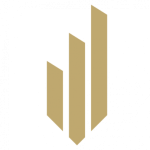Click here to view the April newsletter
Ease of Doing Business
Whether you decide to go for a Private Limited Company or a Micro Company, Lithuania provides a welcoming and easy-to-navigate regulatory landscape. It stands out as a top pick place to do business on a global scale. Lithuania boasts a clearcut and speedy registration process, a tax-friendly system, and a level of flexibility that’s often lacking in today’s corporate world – something we all appreciate. This makes it a breeze for businesses to launch, run smoothly, and expand.
As a member of the European Union (EU) and the Eurozone, Lithuania provides Non-EU entrepreneurs access to a large and affluent market, facilitating trade and business growth opportunities within the EU.
When deciding on a legal structure, take into account diverse factors like the size, nature, and goals of your business. Rest assured, we’re here to provide guidance every step of the way.
Let’s delve into the distinctions between a Private Limited Company and a Micro Company, evaluating the benefits that each structure could offer to your business.
Private Limited Company (UAB)
A Private Limited Company, known as “Uždaroji akcinė bendrovė” (UAB) in Lithuanian, is a popular choice for entrepreneurs looking to establish a separate legal entity with limited liability which provides a certain level of protection to shareholders. With UAB, your personal assets are generally shielded from the company’s debts and liabilities, limiting your financial risk to the amount of your direct investment in the company’s share capital. The minimum share capital required to establish a UAB is 1000 EUR and it must be fully paid upon registration.
UAB’s beauty lies in its flexibility regarding ownership structure and management, empowering shareholders to customize the company’s framework to suit their unique requirements. Both corporate and individual shareholders enjoy the liberty to define ownership rights, voting privileges, and profit-sharing agreements based on their preferences.
Furthermore, UAB can opt to designate directors for overseeing the company’s affairs, facilitating effective decision-making and operational management.
Taxation
Lithuania offers a competitive tax environment for businesses, including UABs. The country has a corporate income tax rate of 15% for medium & large size companies, which is relatively low compared to other EU countries. However, there are some options for reduction:
If the owner of UAB in individual, 0% corporate tax applicable for the 1st year, but this is the must for the business to keep running and for the owner to remain the same for a minimum of 3 years. Otherwise, the first year won’t qualify for tax exemption.
Additionally, Lithuania has implemented various tax incentives to promote investment and entrepreneurship:
- Era of startups: qualified startups can benefit from reduced corporate income tax rates, exemption from real estate tax, and other tax incentives aimed at stimulating growth and innovation in the startup ecosystem;
- Investment Incentives for foreign investors, such as: tax breaks, grants, subsidies, and other financial incentives for eligible investment projects in strategic sectors such as technology, manufacturing, and research and development (R&D);
- Intellectual Property (IP) Box Regime: income generated from qualifying IP assets may be subject to a reduced corporate income tax rate;
- VAT Exemptions and Reduced Rates for certain goods and services, including exports, intra-community supplies, healthcare services, and cultural activities.
Audit: Voluntary or Obligatory?
In Lithuania, whether an audit is required for a Private Limited Company depends on various factors, including the size of the company, its annual turnover, and whether it meets certain criteria outlined in the law. Specifically, UABs are subject to mandatory audit requirements if they meet at least two of the following criteria for two consecutive financial years:
- Total assets exceeding 1.4 million euros;
- Net turnover exceeding 2.8 million euros;
- Average number of employees exceeding 50.
Even if a UAB does not meet the statutory audit threshold, it may choose to undergo a voluntary audit of its financial statements. Many UABs opt for voluntary audits to enhance transparency, credibility, and financial reporting quality, particularly when seeking financing, attracting investors, or demonstrating compliance with regulatory requirements.
Micro Company (MB)
A Micro Company, known as “Mažoji bendrija” (MB) in Lithuanian, is a simplified legal form designed for small businesses and startups.
Like UAB, MB functions as a limited liability structure, providing protection for the personal assets of its members (owners) in the case of business losses or legal disputes involving the company.
Similar to UAB, MB also provides a degree of flexibility in ownership and management. The company can be owned and managed only by individuals, but still offering the freedom to customize ownership rights, voting rights, and profit-sharing arrangements according to their preferences.
Registering a Micro Company in Lithuania is a straightforward process, with fewer formalities and documents required compared to incorporating of UAB. MB also benefits from simplified administrative requirements, including fewer reporting obligations and less stringent corporate governance rules compared to UAB.
Micro Company is generally exempt from statutory audit requirements, regardless of its size or turnover.
Unlike UAB, MB does not have a minimum share capital requirement, making them a cost- effective option for entrepreneurs with limited financial resources. You can start your Company even with 1 EUR!
Reduced Corporate Income Tax Rate
Micro Companies in Lithuania may qualify for 0% corporate income tax rate for the first tax period for reduced corporate income tax rate of 5% on their taxable profits for next years.
To be eligible for the reduced rate, the following conditions must be met:
- The average number of employees does not exceed 10.
- The annual turnover does not exceed 300,000 euros.
- The company’s activities are not in the financial, insurance, or real estate sectors.
If annual revenue exceed 300,000 euros, 15% flat rate apply.
Value-Added Tax (VAT) and Simplified Reporting
Micro Companies in Lithuania are generally required to register for VAT if their annual turnover exceeds 45,000 euros. Micro Companies benefit from simplified VAT reporting procedures, which include quarterly VAT returns instead of monthly returns required for larger businesses. This reduces the administrative burden and compliance costs for Micro Companies.
Summary:
Operating as an MB can be more cost-effective compared to UAB, as it typically involves lower registration fees, fewer administrative requirements and reduced compliance costs. This makes it an attractive option for small businesses and startups with limited budgets and no corporate shareholders on the stage.
However, if your consider more complicated company structure, your income ambitions are higher than 300k EUR a year and 10 employees won’t make your business perform effectively, UAB would be the right choice.
We are here to answer all the questions and assist you with registration of your business in Lithuania. Contact us now!
Click here to view the April newsletter


